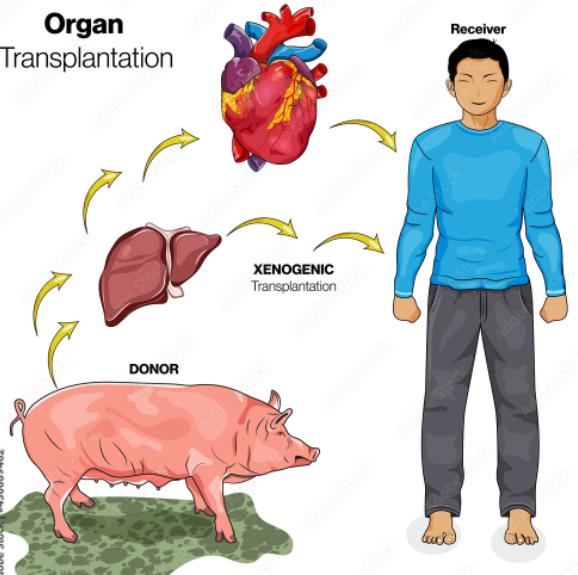Opening your heart and mind to xenotransplantation

June 3, 2022
A man from Maryland with terminal heart disease knows that his time is running out. He was ineligible for a human heart transplant. Due to his medical records he could not get an artificial heart pump. David Bennett did what the rest of us would never do; he was the first recipient of a genetically modified pig’s heart.
Dr. Adam Griesemer, a principal investigator in the Large Animal Xenotransplantation Laboratory at Columbia University Irving Medical Center, explained that xenotransplantation is the transplantation of organs from a different species.
The first in human heart transplant garnered worldwide fascination and led many to speculate about the future of xenotransplantation. After the surgery, the transplanted pig’s heart performed well for several weeks and showed no signs of rejection. Bennett was able to spend time with his family and even watch the super bowl. However, Bennett passed away after two months. He set a record because he survived significantly longer with the pig heart than one of the last milestones in xenotransplantation.
Xenotransplantation can provide humans with an unlimited supply of organs whenever we need it. We can simply raise pigs and genetically modify their genes so that our bodies won’t reject them. It’s a difficult process to keep the transplant recipients healthy even if the transplants aren’t rejected since animals cannot communicate with us and don’t cooperate.
First, pigs are raised in special laboratories, and then scientists remove certain genes. There are various reasons that scientists prefer pigs because they mature very quickly, produce large litters and have organs of comparable size and function to human organs in both infancy and adulthood. Then they test the organs by giving them to brain-dead people and see if the organ will function normally.
This process is easier and faster than waiting for a suitable organ donor. Especially since there are more people in need of a transplant than there are organs available. The process is different for human donors since the donors and the recipient have to be of the same ethnic background in order for the procedure to be successful long term.
This year, the American Transplant Foundation reported that nearly 107,000 United States citizens are currently waiting for a lifesaving organ transplant. About 17 people die each day while waiting on the list. With new breakthroughs, xenotransplantation has the potential to fill in the gaps. Instead of relying on human donors, we can instead just use pigs which we have more of. Scientists can figure out how to improve the procedure, making more organs available to those who need it, especially in cases like that of David Bennett.
Although Bennett passed away, the case was the first successful pig heart to human transplant. The two months give people hope and valuable insights learning that the genetically modified pigs heart can eventually save more lives. Even extending Bennet’s lifespan for two months was a step in the right direction and the results of his procedure will bring everyone closer to using pigs to solve the global shortage of transplant organs.